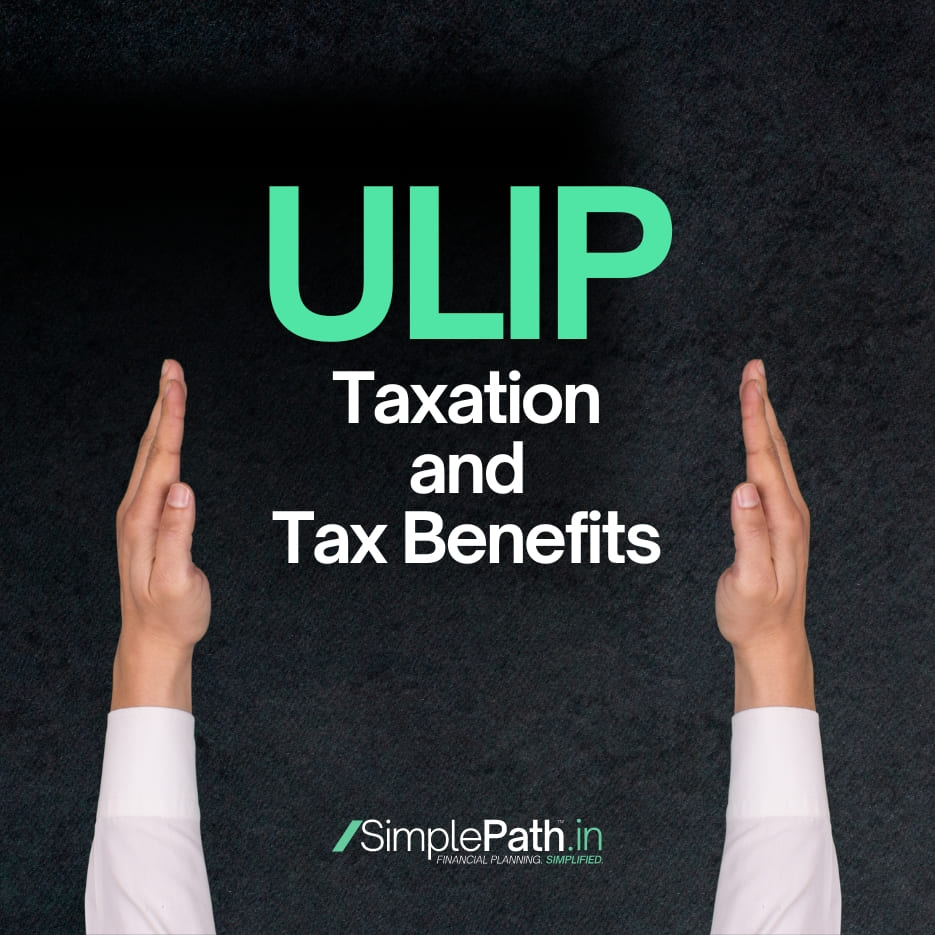ULIP Taxation and Tax Benefits sets Unit Linked Insurance Plan (ULIP) apart from Mutual Funds. Taxation plays a significant role in understanding the overall benefits and implications of investing in a Unit Linked Insurance Plan (ULIP).
ULIP Taxation
Long-term capital gains (LTCG) tax will be applicable on ULIPs like the tax on all equity-oriented investments. In the case of long-term capital gains (LTCG) i.e. the period of holding is more than 12 months, the tax shall be paid at 10%. Short-term capital gains (period of holding 12 months or less) will attract 15% tax on overall gains.
ULIP Tax Benefits
ULIPs offer certain tax benefits that can make them an attractive investment option for many individuals. Here’s a breakdown of the tax benefits of ULIPs:
1. ULIP Tax Benefits under Section 80C: ULIPs offer tax benefits under Section 80C of the Income Tax Act, allowing policyholders to claim deductions on the premium paid towards the ULIP. The maximum deduction allowed under Section 80C is currently Rs. 1.5 lakh per financial year. This deduction is part of the overall limit for various investments and expenses eligible for tax deduction under Section 80C.
2. ULIP Maturity Proceeds Tax Exemption under Section 10(10D): If the aggregate annual premium paid for all these ULIPs remains below ₹ 2.5 lakh throughout the tenure of these policies, then the maturity benefits received from each of these ULIPs will be exempt from taxation.
However, if the cumulative premium for all these ULIPs exceeds ₹ 2.5 lakh in any given year during the policy term, then those policies for which the combined annual premium remains below ₹ 2.5 lakh will still enjoy tax-free maturity benefits, subject to the conditions outlined in Section 10(10D) of The Income Tax Act, 1961. However, the maturity benefits of the remaining policies will be subject to taxation.
3. Tax-Free Death Benefit: The amount received under ULIP on the occasion of the death of the life assured is completely tax-free.
4. ULIP Partial Withdrawals and Tax Implications: If you make partial withdrawals from your ULIP during the policy term, they are generally tax-free, subject to certain conditions. However, if the total amount withdrawn during a financial year exceeds 20% of the premium paid, the amount exceeding this threshold is subject to a tax deduction at source (TDS).
5. Switching between Funds Taxation: Switching between funds within a ULIP does not attract any immediate tax liability. This tax-free switching feature allows policyholders to reallocate their investments based on market conditions or changing financial goals without triggering tax consequences.
Read About – Using ULIP as Effective Systematic Investment Plan
It’s important to note that the premium paid towards a ULIP is allocated between insurance coverage and investment. While the insurance component qualifies for tax benefits under Section 80C, the investment component does not have any separate tax benefit.
ULIPs are designed for the long term, and they offer tax benefits primarily for those who stay invested until maturity. Withdrawing funds from a ULIP before the completion of the lock-in period (usually five years) may lead to the reversal of tax benefits previously claimed under Section 80C.
While ULIPs offer tax benefits, it’s important to consider other factors as well, such as charges, investment performance, and the insurance component. Before investing in a ULIP, assess your financial goals, risk tolerance, and overall investment strategy to ensure that it aligns with your tax planning and wealth creation objectives.
In conclusion, ULIPs offer significant tax advantages, primarily through deductions on premiums under Section 80C and tax-free maturity proceeds under Section 10(10D). These benefits, combined with insurance coverage and investment opportunities, make ULIPs an attractive option for individuals seeking long-term wealth creation and financial security.
As tax laws and regulations can change over time, it’s recommended to consult with a tax professional or financial advisor at SimplePath to ensure that you have accurate and up-to-date information on ULIP taxation and how it fits into your overall financial planning.





